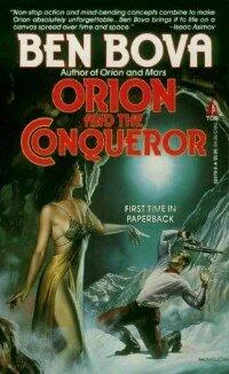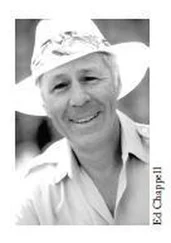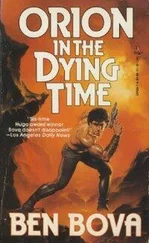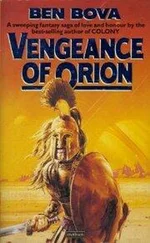The old man had recovered some of his courage, too. “You have already slain enough men to keep our village in mourning for the rest of the year, young lord.”
“Is that your answer?”
He bowed his head. “You may take whatever vengeance you desire, my master.”
“I will take, then, these young men.”
“You would slay them all?” Beyond the fire’s dancing shadows I sensed a stir among the villagers.
“I will not slay any of them. They will join my army and fight against my enemies.”
His army! I wondered what Philip would say to that.
“But, sir,” said the old man, “if you take all of them we will have no one to tend the sheep, no one to defend our village from the marauders of the next valley.”
“You would prefer that I hang them, here and now?”
“Hang me,” said the old man, trying to draw himself up straight. “I am the leader of these people. I am responsible for their crime.”
Alexandros stared at the white-beard. Then he broke into a wide grin. “You’re right, old man. Your village has been punished enough.” He turned to the waiting younger men. “Go back to your homes. And thank the gods that you have a man of courage leading your village.”
The old man sank to his knees. “Thank you, brave lord! Thank you for your mercy.”
Alexandros pulled him up to his feet. “There is one thing that I want you to do, however.”
“What is it, lord?”
“Raise a statue to me and place it here, on this spot, as a reminder to your people to cease their thieving ways.”
“I will have it done, lord. But I don’t know your name.”
“Alexandros of Macedon.”
“The son of Philip?” The whole village gasped.
Alexandros’ smile vanished. “The son of Zeus,” he answered.
When we returned to the main body of the army we received more bad news. The Athenians had already marched their army to Thebes and now the two armies, together with other allies from among the smaller cities nearby, stood ready to block our path to Thebes and Attica.
“Can we maneuver around them?” Alexandros suggested. “Take Thebes while they stand in the field waiting for us to appear from the north?”
Philip’s one good eye widened. “Clever thinking, son.”
We were huddled in Philip’s tent, bent over a folding table that bore a map of the area. Alexandros stood across the table from Philip, who was flanked by Parmenio and Antipatros. Antigonos the One-Eyed stood beside Alexandros; Ptolemaios and the other Companions crowded behind them. I was at the tent’s entrance flap.
“Can you find a route that the whole army could pass over without being detected by the enemy?” Philip asked Alexandros.
Barely glancing at the map, Alexandros replied, “No, not the whole army. We would be seen and reported on, no matter which route we took.”
Philip nodded.
“But,” Alexandros went on, “a smaller group of men, a striking force of cavalry with a phalanx or two of hoplites, could swing around the enemy army and take Thebes while they’re still in the field awaiting your advance.”
Parmenio blurted, “That’s foolhardy! A small force could never take the city by storm and wouldn’t be able to lay siege to it.”
“We would have the advantage of surprise,” Alexandros shot back.
“D’you expect the Theban garrison to drop dead of shock at the sight of you?” Parmenio quipped.
No one laughed. The tent fell deathly silent.
Philip broke the silence. “If you could take the city it would be a great advantage to us. But it would not eliminate the army that faces us. They’d still be there, and we’d still have to deal with them.”
“And we’d be weaker,” said Antipatros, “because your striking force would no longer be with the main body of our army.”
Alexandros said nothing. He simply stared down at the map, his face red with suppressed anger.
“Do you understand the situation?” Philip asked gently. “We must defeat their army in the field. Seizing Thebes won’t accomplish that.”
“I understand,” Alexandros said tightly, without looking up.
“The question, then,” said Antigonos, “is where do we fight them?”
“And how many of them are there? What’s their order of battle? Who’s leading them?” Parmenio was full of questions.
“We’ll get some information along those lines shortly,” said Philip.
“From spies?” Antipatros asked.
Philip nodded.
“I don’t trust spies,” grumbled Antigonos. “They can lie to you as often as not. I prefer to see the enemy’s dispositions with my own eye.” And he put a forefinger below his one good eye.
“Perhaps you and I should scout out the enemy together,” suggested Philip, pointing to his own single eye. “Between us we equal one whole scout.”
Everyone broke into laughter, the king loudest of all.
“We need to scout them out,” agreed Parmenio. “Even the best of spies doesn’t have a military head. We need to find out exactly what we’re facing.”
“You won’t like what you see,” Philip warned. “They’ll outnumber us by quite a bit.”
“And the Theban Sacred Band is worth two or three times its numbers,” said Antigonos.
“We need some scouts,” Parmenio insisted.
“I’ll take a look at them,” Alexandros said.
“No. It’s too risky. You stay in camp.”
“But I can do it!”
“So could I,” said the king. “But I’m too valuable to risk on a mission that others can do as well.”
“All our necks will be beneath the blade once the battle begins,” Antipatros said, trying to make peace. “There’s no sense taking risks now that we can avoid.”
Alexandros raised no further objections, and the meeting broke up with the agreement that Parmenio would pick the men who would cautiously scout the enemy encampments.
But as I followed Alexandros and his Companions back toward their tents, Alexandros pulled me aside. Waving the others to go on, he walked me toward a small clump of trees near one of the horse corrals. I had become accustomed to the smell of the horses and their nervous snuffling when they were penned into the makeshift corrals. It was almost sundown and the horses were anticipating the arrival of the slaves with their bundles of hay.
“Orion,” said Alexandros, in a low, confidential tone, “it is clear to me that my father and his generals need information from inside the enemy’s camp.”
“I’m sure—”
He cut me off, impatient to have his say. “Parmenio’s scouts won’t be able to glean the kind of information we need.”
“Your father has spies in the enemy camp, though. Surely they’ll bring out—”
“No, no! We need someone from the army to go into the enemy camp and see for himself how they are arrayed, who their leaders are, what their plans are.”
I thought I understood what he was driving at.
“You want me to do this?”
He had to crane his neck to look up into my face. “Not exactly, Orion. I am going to do it myself.”
“You!” I was thunderstruck.
“But since my mother told me I must not go anywhere without you,” he went on, unperturbed, “you will have to accompany me.”
“But you can’t—”
“I can’t let Hephaistion and the others know; they’ll want to come with me.”
Appalled, I blurted, “You can’t go into the enemy’s camp!”
“And why not?”
“You’d be recognized! You’d be killed or captured and held for ransom. You could wreck your father’s entire plan!”
Alexandros smiled at me, pityingly. “How little you understand, Orion. I cannot be killed. Not before my time. My mother is a priestess of the Old Gods and she has prophesied that I will not die until I have conquered all the world.”
Читать дальше












